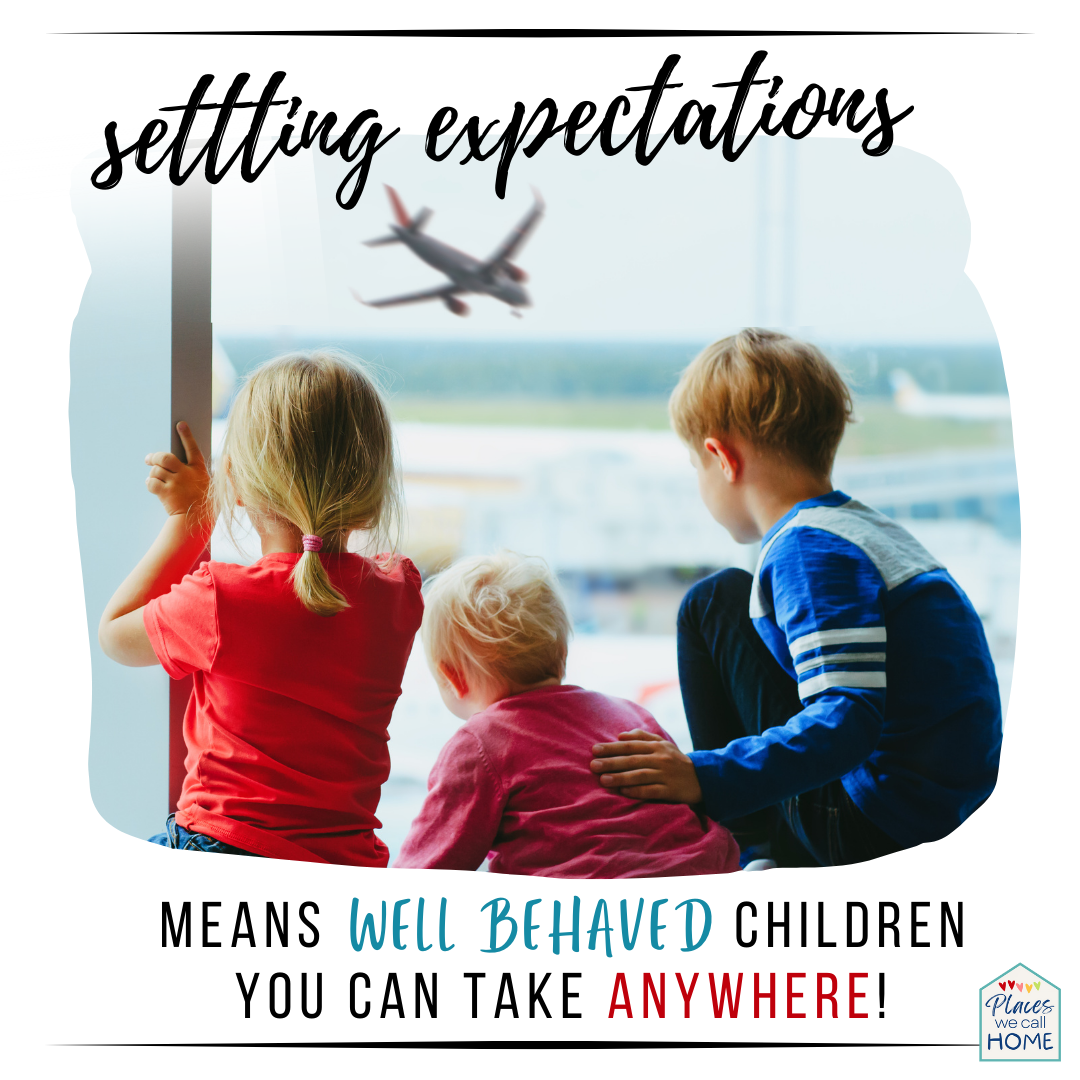What to Do When Your Kid Doesn’t Listen
Many parents tell me they can’t do things with their children for all kinds of reasons: their children don’t listen, wouldn’t sit still, can’t wait in a line, they act like monkeys at restaurants… the list goes on.
I get it. Children and outings can be really tough. Children and anything can be really tough! But you know what? It doesn’t have to be that way.
Here’s what to do when your kid doesn’t listen: mean what you say. This is the best parenting advice I can give to anyone who’s having trouble with misbehaving children.
Children quickly learn when we don’t mean what we say. This teaches them they don’t need to listen.
For example, if your child is misbehaving at a friend’s house and you say, “If you throw another toy we’re going home,” then you better go home the next time he throws a toy, or else your child is learning you don’t mean what you say. If your child cries at the store for a toy and your first answer is no, but you later give in, your child has learned you don’t mean what you say.
Many times our first response to our children is a thoughtless reaction. Something comes out of our mouths due to frustration, embarrassment, desperation, distraction or all of the above. Our children learn repeatedly that we really don’t mean what we say.
But.
There’s another way.
Mean what you say. Every time. Every single time. Until they know you mean what you say, every time!
When they ask for a cookie, stop. Think. Answer and mean it.
When they ask to go to the playground, stop, think, answer, and mean it.
When they ask for another bed time story, another few minutes in the tub, more TV time, to color, to get out the playdoh… whatever they ask you, think about your answer.
Answer precisely.
Don’t say, “Later.” Instead tell them, “After we clean up dinner, we can get out the playdoh.” And then get out the playdoh after you clean up dinner. Even if they’ve forgotten about the playdoh!
Mean what you say. Every time.
Start with the little things. Make it your goal that every little decision is carefully thought out, so your words match your actions.
Then work into bigger things. When you’re at the playground and it’s time to go, it’s time to go. When you ask them to put on their shoes and get in the car, that doesn’t mean in 10 minutes when they’re done playing, it means now, because you are ready to leave- now. They will learn that if they ask you for another TV show and you say no, no amount of whining is going to change your mind— because they now know you mean what you say.
Once your children know you will follow your words with actions, they start to listen.
After your children get used to this idea, taking them anywhere gets much easier. Because they listen!
They know that if you tell them to stand nicely in line, that you mean it.
They understand that if they ask you for ice cream, no means no.
They can’t manipulate you into changing your mind by whining, crying, acting out, or throwing a fit… no more store tantrums.
“We aren’t buying toys today” doesn’t mean beg, climb up my leg, and shake my arm until we buy a toy.
“5 more minutes and we’re leaving” means your child stops playing and leaves nicely when you say it’s been five minutes.
Don’t get me wrong. This isn’t magic.
We still have children who whine and cry, sulk and try to manipulate. I still have my moments of crazy: “THE BUS IS COMING! WHY AREN’T YOUR SHOES ON?” (After nicely asking him to put on his shoes two times.) But on the whole, our children are very well behaved. Since we’ve been practicing this for many years, they know I mean what I say.
If any of you are thinking I have little robots, you’re mistaken. They have strong opinions and voice them, but they know manipulation won’t get them what they want, so they use other tactics.
They’re learning how to negotiate, and how to read me and other people, which are important life skills. I let them change my mind if they use positive tools such as logic, rational arguments, or empathy. They know I mean what I say, but I’m open to hearing their side.
I also know how to read each of our children, and I can see when we’re getting close to a breaking point, and that’s when I use other tactics to guide their growth.
Parenting isn’t a one-trick show, mama, and this is just one bit of advice out of many. But having children who listen to you is a really, really nice place to be - you can bring children like that anywhere, and they’re well behaved and charming.
Did you pin it for later? Thank you!
You might also like:






